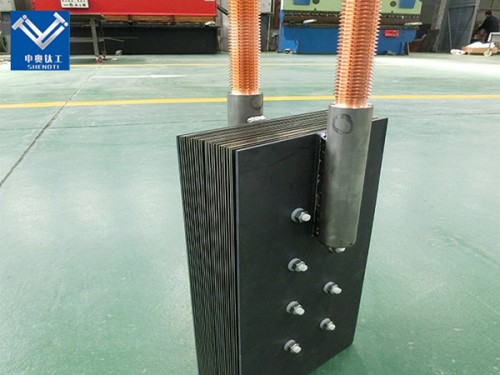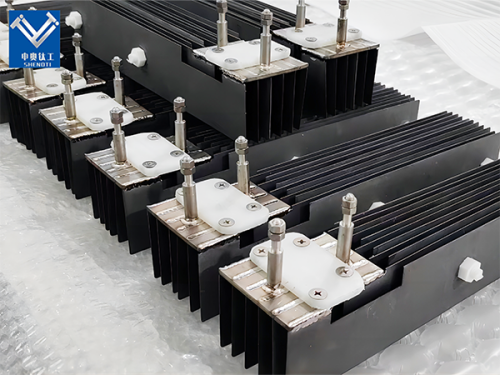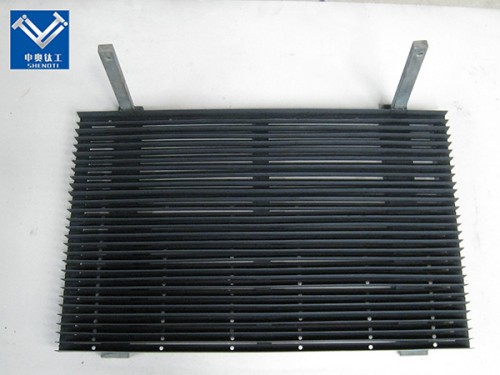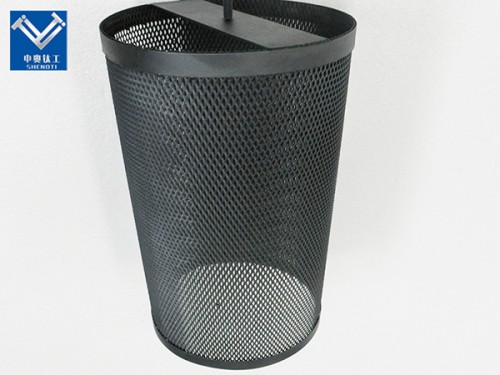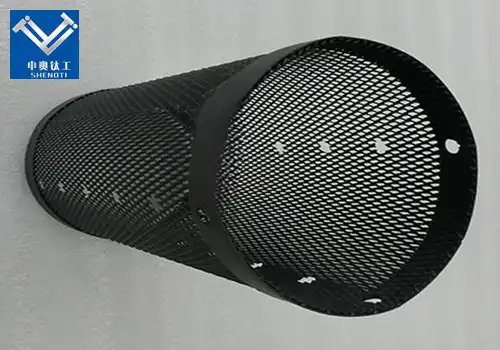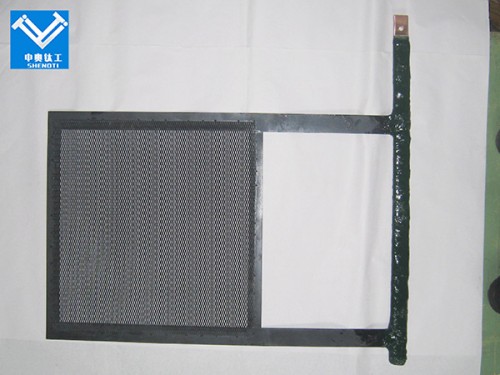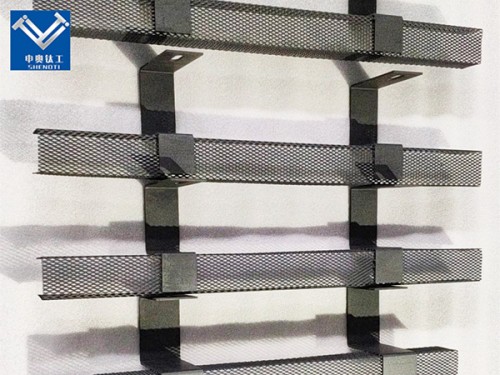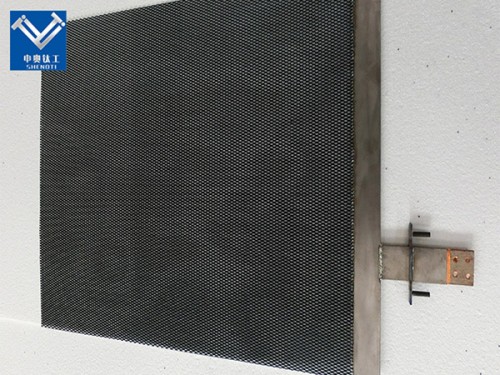
Why Choose Titanium Anode for Electrochemical Water Treatment?
2025-08-23 09:11:28
Water pollution and scarcity are among the most pressing global challenges of the 21st century. Industries, municipalities, and research institutions are actively seeking advanced, efficient, and sustainable water purification methods. Among the emerging technologies, the titanium anode for electrochemical water treatment has attracted widespread attention.
What Is a Titanium Anode for Electrochemical Water Treatment?
A titanium anode for electrochemical water treatment is a specially engineered electrode made from high-purity titanium, often coated with precious metal oxides such as ruthenium, iridium, or platinum. These coatings enhance conductivity, stability, and catalytic activity, enabling the anode to effectively generate oxidizing agents during the electrochemical process.
Electrochemical water treatment relies on the principle of passing an electric current through water to initiate oxidation-reduction reactions. Contaminants such as organic pollutants, heavy metals, pathogens, and toxic chemicals are broken down, neutralized, or precipitated. The titanium anode plays a central role in driving these reactions efficiently while maintaining long service life.
Technical Titanium anode for electrochemical water treatment
Material base: High-grade titanium (Grade 1 or Grade 2).
Coating: Mixed Metal Oxide (MMO), Platinum, or Iridium-based coatings.
Function: Oxidation of pollutants, disinfection, and generation of active chlorine.
Durability: Resistant to corrosion, acid, and alkaline environments.
Why Choose Titanium Anode for Electrochemical Water Treatment?
1. Superior Corrosion Resistance
Unlike traditional electrodes, titanium anodes are exceptionally resistant to corrosion, even in aggressive electrolytes such as seawater, industrial effluents, or brine solutions. This ensures stable performance and long operational life.
2. High Current Efficiency
The use of noble metal oxide coatings allows titanium anodes to achieve high current efficiency. This means less energy consumption per unit of treated water, making them cost-effective and environmentally friendly.
3. Eco-Friendly and Sustainable
Electrochemical treatment eliminates the need for harmful chemical additives. By using a titanium anode for electrochemical water treatment, industries reduce their chemical footprint, ensuring compliance with stricter environmental regulations.
4.Long Service Life
Titanium-based anodes are designed for long-term use, often lasting several years without significant degradation. This reduces maintenance costs and downtime for industrial users.
Applications of Titanium Anode in Electrochemical Water Treatment
1. Industrial Wastewater Treatment
Industries such as textile, chemical, pharmaceutical, and petrochemical generate wastewater containing complex pollutants. Titanium anodes are highly effective in oxidizing organic matter, reducing COD/BOD levels, and neutralizing hazardous compounds.
2. Seawater and Brine Treatment
For desalination plants and marine industries, titanium anodes ensure efficient disinfection and removal of biofouling organisms. Their resistance to chloride-rich environments makes them the ideal choice.
3. Municipal Drinking Water Purification
Cities around the world adopt electrochemical processes to disinfect water supplies without adding harmful chlorine by-products. Titanium anodes ensure safe, clean, and sustainable drinking water.
4. Swimming Pool and Spa Water Treatment
Titanium anodes are also widely used in recreational facilities. They provide effective disinfection, reduce chlorine usage, and maintain healthier water quality.
5. Groundwater and Well Water Treatment
Electrochemical systems powered by titanium anodes can effectively remove iron, manganese, arsenic, and microbial contaminants from groundwater sources, ensuring safe consumption.
How Does a Titanium Anode Work in Electrochemical Water Treatment?
1. The Electrochemical Mechanism
When an electric current passes through the system, the titanium anode initiates the formation of oxidizing species such as hydroxyl radicals, ozone, and active chlorine. These powerful oxidants break down organic pollutants and kill microorganisms.
2. Step-by-Step Process
Electrolysis initiation – Electric current is applied to water via titanium anode and cathode.
Oxidation reaction – Contaminants are degraded into harmless compounds.
Disinfection – Pathogens such as bacteria, viruses, and algae are destroyed.
By-product minimization – Compared to chemical treatment, fewer toxic by-products are formed.
Titanium Anode Advantages Over Conventional Methods
1. Titanium Anode vs. Chemical Treatment
No chemical storage or handling risks.
Consistent treatment results without dependence on chemical quality.
Lower long-term operational costs.
2. Titanium Anode vs. Carbon or Graphite Electrodes
Greater durability and stability.
Better performance in harsh environments.
Lower risk of electrode breakage or wear.
The titanium anode for electrochemical water treatment represents a powerful solution for industries and municipalities seeking sustainable, efficient, and eco-friendly water purification technologies. With excellent durability, high current efficiency, and unmatched corrosion resistance, titanium anodes are set to play a crucial role in addressing the world’s water challenges.
Whether it’s wastewater recycling, seawater treatment, or municipal water purification, investing in titanium anodes is a forward-looking decision that delivers both environmental and economic benefits.
Baoji City ShenAo Metal Materials Co., Ltd. is a leading manufacturer specializing in titanium anodes, titanium clad plates, and advanced metal composite materials. With years of expertise in electrochemical technologies, we provide tailored solutions for water treatment, energy storage, and industrial applications.
Contact Us
Email: zh@baojiti.com.cn
Website: www.shenaocladplate.com
Consultation Hotline:18729731603
YOU MAY LIKE











